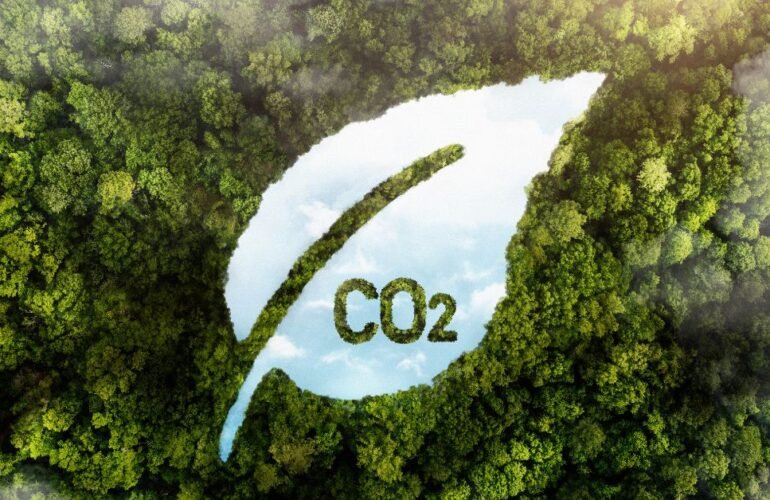What Malaysian Companies Need to Know About SDGs and Sustainability Policies – In 2025, Malaysia’s Sustainable Development Goals (SDG) agenda is guided by the SDG Roadmap Phase II (2021–2025), which aligns national policies with the UN 2030 Agenda. The roadmap sets measurable targets across five pillars: People, Prosperity, Planet, Peace, and Partnerships and aims to submit at least 20 Voluntary Sub-National and Local Reports to the UN. Key priorities include ending poverty, improving education and health, advancing gender equality, and accelerating the shift to a sustainable, circular economy, with coordinated government, private sector, and civil society efforts.
The United Nations established the Sustainable Development Goals (SDGs) to address pressing global issues, including climate change, poverty, and inequality, to create better lives for people everywhere. With 17 clearly defined goals, the SDGs serve as a blueprint for sustainable development, prioritising poverty eradication, environmental protection, and societal well-being. In Malaysia, the Sustainable Development Goals (SDG) Indicators Report, 2018, reflects the country’s progress toward achieving the 2030 Agenda. It highlights national initiatives aligning with the SDGs’ integrated approach to tackling poverty, fostering economic growth, improving social welfare, and protecting natural resources. This means prioritising education, health, social protection, and job creation while addressing climate change and resource sustainability.
For Malaysian businesses, the Sustainable Development Goals underscore the importance of embedding sustainable practices into corporate strategies. Companies can align their operations with these global goals by adopting Environmental, Social, and Governance (ESG) principles. ESG helps businesses address social and environmental challenges while promoting long-term economic growth and sustainability. In doing so, they contribute to national and global sustainability agendas, enhance their resilience, strengthen stakeholder trust, and position themselves competitively in a sustainability-conscious market.
This article will examine the SDGs and Malaysia’s established sustainability policies through a business-focused lens, outlining practical and actionable steps for Malaysian companies to align their operations with these goals.
What is SDG Malaysia, and why is it Important?
The Sustainable Development Goals (SDGs) are a universal framework adopted by Malaysia and 192 other nations in 2015 to address critical challenges, such as climate change, inequality, and poverty, while driving inclusive economic growth. With 17 Goals, 169 Targets, and over 200 Indicators, the SDGs are a roadmap for balancing economic, social, and environmental priorities. For Malaysia, specific goals, such as Climate Action (Goal 13), Responsible Consumption and Production (Goal 12), and Decent Work and Economic Growth (Goal 8), stand out as crucial for ensuring resilience against environmental challenges and fostering fair economic progress. Prime Minister Datuk Seri Anwar Ibrahim, speaking at the Malaysia SDG Summit 2024, underscored the nation’s commitment, noting, “Malaysia is making significant strides in achieving Sustainable Development Goals (SDGs), having accomplished 43% of its targets, well above the global average of 17%.”
This progress is shaping government policy and aligning with investor priorities. Eco-conscious investors increasingly focus on sustainable development and business practices, reflecting the government’s push toward eco-conscious growth. Additionally, this alignment has fueled a rise in eco-conscious consumers who actively seek out sustainable brands and hold businesses accountable for their practices.
For Malaysian companies, aligning with the SDG framework is a strategic move to position themselves as responsible and future-ready players in a sustainable economy. Businesses that integrate these principles into their operations strengthen investor confidence, boost market competitiveness, and appeal to the growing segment of sustainability-driven consumers.
For companies aiming to deepen their knowledge of Malaysia’s ESG landscape and see how SDGs fit into the nation’s overall sustainability strategy, read our comprehensive guide: A Deep Dive into ESG and Environmental Sustainability in Malaysia: Progress, Challenges, and Initiatives.

Why SDGs Matter to Malaysia’s Economy and Environment
Malaysian companies must align with the SDGs. It is not only to improve their economic resilience, but also to enhance the country’s international reputation for sustainability. Malaysia has made significant strides in this regard and achieved notable successes. However, it also faces some ongoing challenges, such as promoting inclusive economic growth, reducing carbon emissions, and addressing the problem of deforestation. With the SDGs in place, the country is taking positive and proactive steps towards achieving its goals.
If your business needs help developing an effective sustainability report aligned with global and Malaysian standards, our blog, Malaysia’s Evolving ESG Report Creation, provides practical advice from planning to execution.
Sustainability in Malaysia: Policies and Frameworks
National frameworks offer businesses grants, tax breaks, and other incentives to encourage alignment with Malaysia’s sustainability agenda. These benefits help offset operational costs and support sustainability investments for companies that follow the frameworks.
The 12th Malaysia Plan (2021–2025)
The 12th Malaysia Plan, introduced in 2021, outlines the national agenda for sustainable economic growth and green development. It focuses on enhancing resource efficiency and promoting environmentally friendly initiatives throughout Malaysia.
National Policy on Climate Change
The Malaysian National Policy on Climate Change promotes climate resilience by encouraging organisations to adopt advanced green technologies. This policy helps businesses mitigate environmental risks and adapt effectively to changing climate conditions.
Green Technology Master Plan (GTMP)
The Green Technology Master Plan (GTMP) positions Malaysia as a hub for green technology by prioritising sustainable infrastructure and renewable energy. This initiative lays the foundation for a low-carbon economy, driving innovation while fostering environmental resilience.
Economic MADANI
The Economic MADANI framework supports Malaysia’s socio-economic transformation by promoting sustainable and inclusive growth. It focuses on policies that address economic and social equity, ensuring that progress benefits all segments of society.
Unsure which sustainability framework to choose? Our article Six Major ESG Frameworks You Need to Know: Which One is Right for You? compares the most widely used ESG and sustainability reporting standards for Malaysian businesses.
Practical Steps for Malaysian Companies to Align with SDGs
Businesses that are eager to embark on their sustainability journey can benefit from some practical steps to enable them to adapt to Malaysia’s sustainable policies:
Setting Up an SDG Strategy
The first step is to comprehensively analyse the company’s SDG gap to identify relevant goals. Once this has been completed, stakeholders must be engaged to ensure they align with the company’s core values.
10 Actionable Steps for Adapting to SDGs and Sustainability Policies
- Set specific goals by establishing SMART goals (Specific, Measurable, Achievable, Relevant and Time-bound). These must align with the Sustainable Development Goal targets in Malaysia.
- Implement initiatives to increase energy efficiency and reduce the organisation’s energy consumption by adopting energy-efficient, upgraded equipment.
- Adopt practices to ensure greater sustainability in the supply chain by collaborating with suppliers committed to sustainable practices.
- Embrace the principle of a circular economy by minimising waste through recycling, reusing, and designing longer-lasting products.
- Assemble an internal team dedicated to ESG and assign them the responsibility for advancing and monitoring sustainability initiatives.
- Conduct annual sustainability audits to ensure progress tracking and compliance with relevant regulations.
- Engage in programmes to support community welfare in alignment with social SDG goals.
- Create processes for more transparent reporting to meet the expectations of investors.
- Invest in employee training to develop sustainability skills and promote greater awareness throughout the workforce.
- Consider options for green financing and access sustainable project funds, such as those offered by MIDA.
To learn more about certification pathways and structured steps for businesses seeking to align with national sustainability and SDG requirements, consult Malaysia’s ESG Certification Landscape: Standards and Certification Processes.
If you are uncertain how to embark on your company’s ESG journey, contact AsiaESG ESG experts with the skills and expertise to guide you toward SDG alignment.
The Benefits of Complying with Sustainability Policies in Malaysia
Malaysian companies today should view compliance not only as a means of meeting regulatory requirements but also as a means of investing in their long-term resilience and success.
Compliance brings a host of advantages such as:
- Greater access to capital is available to companies that align with sustainability standards, as they have a higher chance of leveraging green financing and attracting more ESG-conscious investors.
- Cost savings are achieved through sustainable practices, such as waste reduction and energy efficiency, which reduce operating costs.
- A better brand image, a stronger reputation, improved customer loyalty, and the ability to attract top employee talent.
- Long-term resilience with a greater ability to handle environmental risks, market volatility and regulatory shifts.
For SMEs and corporates seeking to tap into Malaysia’s green financing ecosystem, Maximising the MIDA DIAF Grant to Kickstart ESG Adoption for Malaysia SMEs explains how to secure grants and capital for sustainability projects.
Meanwhile, failing to comply can bring some significant potential losses, including:
- Missed opportunities to benefit from green finance and incentives that are only available for organisations that pursue sustainable practices.
- Damage to reputation by creating a negative perception of the brand amongst eco-conscious customers.
- Greater regulatory pressure, including potential fines, operational limitations, and stricter regulations, is being introduced as policies change and evolve.
It’s clear, then, that companies that align with Malaysia’s SDGs and adopt sustainability policies can reap multiple benefits from their compliance, including enhanced resilience, an improved reputation, and overall cost savings.
Discover how rising ESG investing trends are shaping business priorities in Malaysia with Rising ESG Investing Trends and Opportunities in Malaysia.
If you’re ready to launch your company’s ESG strategy, the best place to begin is an SDG audit or connecting with an AsiaESG ESG consultant who can help create your company’s most effective sustainability strategy. AsiaESG is leading the way in the field, offering tailored support for your company. This allows you to leverage resources such as green finance and regularly assess your sustainability progress, ensuring you remain on track with sustainable policies in Malaysia.
For any enquiries or quotations about ESG Solutions, get in touch with our ESG Solutions department below:




